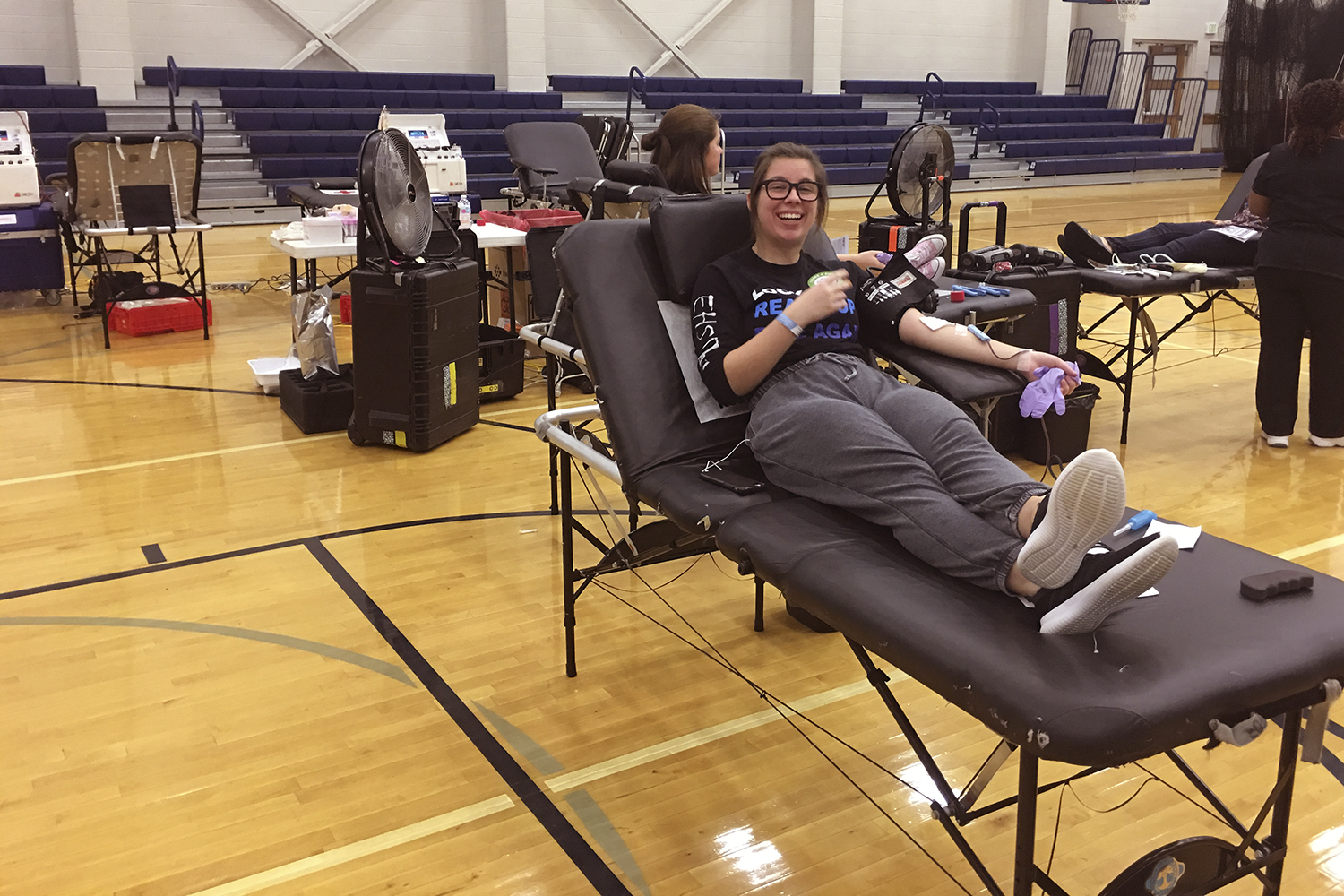
Bleeding to save lives
EHS’s Health Occupations Students of America, or HOSA, hosted November 6 their fifth annual American Red Cross blood drive, headed by Cindy Quisenberry.
The blood from the drive goes to the local hospital, Medical Center Enterprise, helping save the lives of those who are in desperate need of a transfusion.
HOSA received a wide variety of donors, from medical students to teachers.
The average donor will give around 80 units of blood, unless they choose to undergo aphaeresis, in which case the donor will give approximately 2 units of blood.
Aphaeresis is a process where the donor is eligible to give more blood than the average amount and they get back the plasma, unlike the regular procedure where the plasma from the donated blood is removed completely from the donor.
The aphaeresis mechanism is also known as the “power red machine.”
However, donors who undergo aphaeresis are more likely to pass out from the exhaustion and dizziness that comes with giving.
Even just regular blood donors are notorious for fainting during the giving process, especially those who are frightened of needles and blood.
Faith Echols, a student at EHS, donated blood during the school’s drive and nearly passed out during the procedure.
She described how giving blood “hurts a little, but knowing that [she’s] saving a life is making it better.”
Echols felt a “slow headache coming on, [and she was] starting to see spots.”
Her voice became shaky and quiet; her perception of the situation slowly faded in and out as she started losing consciousness.
A nurse started tending to her almost immediately, placing a cold compress over her eyes and laid her head back to relax, allowing her body to lie flat on the bed.
After this event, Echols laid in the back of the room and proceeded to eat the snacks provided at the drive in an attempt to get her blood sugar levels back to normal.
Faith Echols is not the only one who felt light-headed during the blood giving process: Echols explained that a few people had passed out as she was giving blood.
Even though donating blood can be taxing, it is a worthwhile event that betters our community and testifies to the selflessness of our students and staff.
